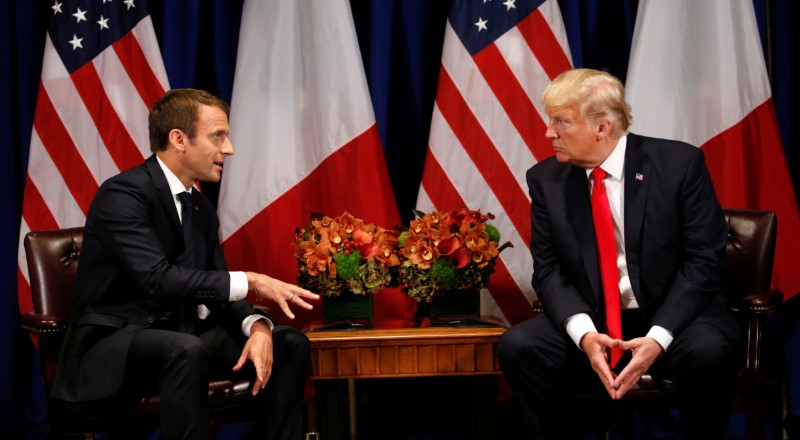WASHINGTON (Reuters) - U.S. President Donald Trump and French President Emmanuel Macron will discuss the Iran nuclear agreement at the White House on Tuesday, although discussions with European countries on addressing U.S. concerns about the 2015 deal were "not quite done yet," a senior administration official said on Friday.
The official told reporters at a briefing that Trump would also discuss other issues with Macron, including the joint military strike on Syria this month following a suspected chemical weapons attack near Damascus.
The deal reached between Iran, the United States and five other world powers put curbs on Iran's nuclear program in exchange for sanctions relief.
Trump has called the agreement one of the worst deals ever negotiated. In January he sent an ultimatum to Britain, France and Germany, sometimes referred to as the E3, saying they must agree to fix what the United States sees as the deal's flaws or he would refuse to extend the critical U.S. sanctions relief that it entails.
"The Europeans, E-3 in particular, have been working hard in trying to address some of our most important or prominent concerns having to do with Iran's ballistic missile program, for example, the sunset clause in the JCPOA and so on," the senior administration official said, referring to the agreement by its acronym. "That work is not quite done yet."
U.S. disarmament ambassador Robert Wood said on Thursday Washington had been having "intense" discussions with the three European allies ahead of the May 12 deadline, when U.S. sanctions against Iran will resume unless Trump issues new "waivers" to suspend them.
Iran has said it will stick to the accord as long as the other parties respect it, but will "shred" the deal if Washington pulls out.

"Iran has several options if the United States leaves the nuclear deal. Tehran's reaction to America's withdrawal of the deal will be unpleasant," Iranian state TV quoted Iranian Foreign Minister Mohammad Javad Zarif as saying in New York.